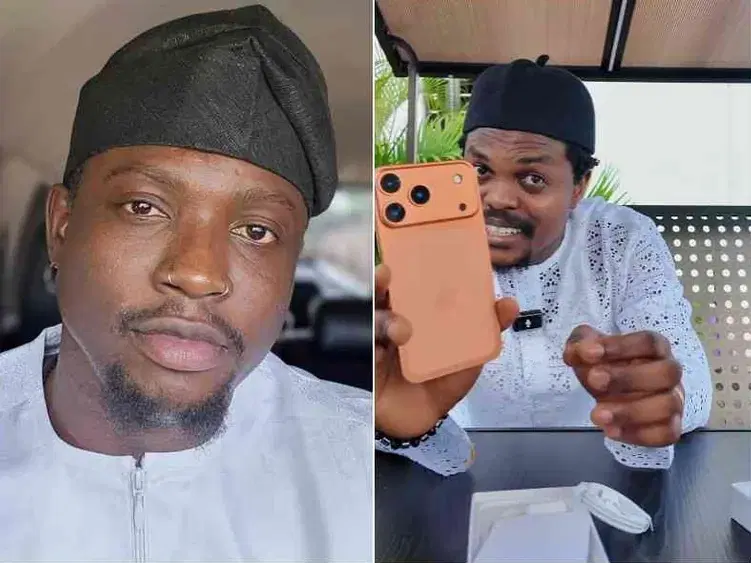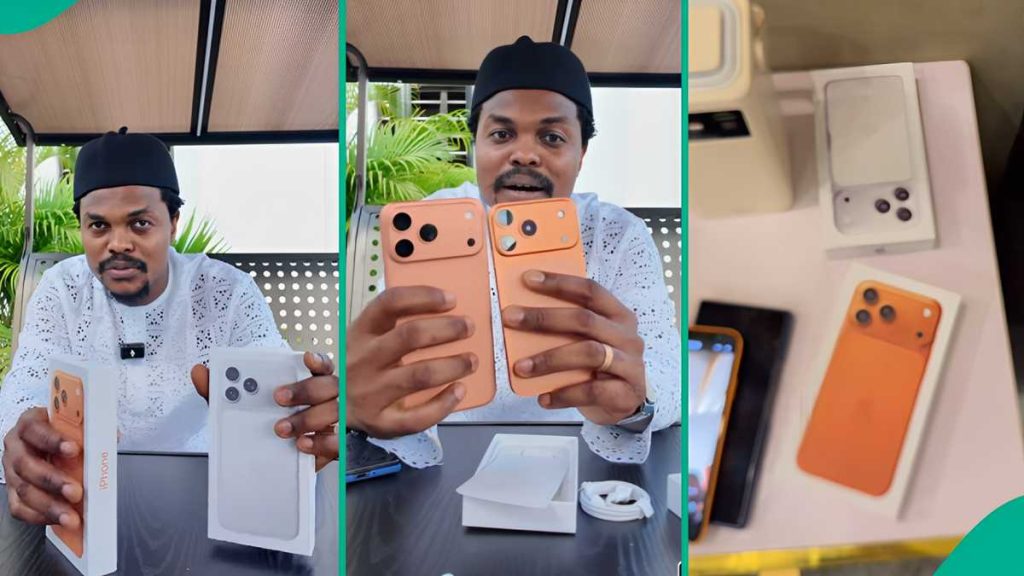Physical Address
60 Ekwema Cres, Layout 460281, Imo
Physical Address
60 Ekwema Cres, Layout 460281, Imo

Apple Inc., a giant in the technology world known for its premium smartphones, is facing a serious challenge in Nigeria. The problem is the fake iPhone XR-to-17 conversion saga in Nigeria. This story involves turning older iPhone XR models into phones that look like the new iPhone 17 Pro Max, causing confusion and doubt among buyers.
The saga began with two well-known Nigerian influencers. One is Blord, a gadget seller linked to China, who showed off phones looking just like the iPhone 17 Pro Max. The other is VeryDarkMan (VDM), a social media activist who exposed that these phones were not real. Instead, he showed videos claiming old iPhone XR models were sent to workshops in China. There, the phones were stripped and given new cases and screens to make them appear like the latest iPhone.
Blord admitted to selling these converted phones for ₦450,000, while VDM said the actual cost was ₦280,000. This difference showed how much people were paying for what they thought was the newest iPhone but was just an upgraded older model.
Read Next: Tunisia’s PAYDAY Raises $3 Million to Digitally Transform Worker Finance
The iPhone 17 and the iPhone XR are very different. The iPhone 17, released in September 2025, has a better screen, faster Apple A19 processor, 8GB RAM, and dual 48MP cameras. It runs on the newest iOS 26, which brings many features and security updates.

The iPhone XR, released in 2018, has a slower A12 Bionic chip, less RAM, a single 12MP camera, and runs on an older iOS 122 system. So the fake phones look modern but perform like old ones.
Many Nigerians want to own the latest iPhone because it shows status and style. But this saga shows how focusing on the phone’s look rather than real quality creates a problem. On social media platforms like X and Instagram, people want Apple to act against these fake phone sellers.
Apple has no official store in Nigeria, but its products still sell through local vendors. When buyers purchase what they believe is an iPhone 17 Pro Max yet get a converted XR, they expect top speed, excellent cameras, and long battery life but find the opposite.
Most customers do not know their phones are fake. Instead, they blame Apple for poor quality, slow apps, and battery problems. This harms Apple’s premium image.
The fake phones also carry security risks. Since they use old parts and altered hardware, they cannot receive the latest Apple updates. This leaves phones open to hacking, malware, and other dangers, seriously hurting Apple’s reputation as a secure device maker.
With Nigeria’s growing use of mobile banking and online payments, having an unsafe phone is a big worry. Customers may stop trusting Apple products, fearing financial loss or data theft.
A genuine iPhone keeps its value well and can be resold or repaired by official Apple service centers. In contrast, buyers of fake XR-to-17 phones end up with costly gadgets they cannot repair or trade in. These fakes become worthless, turning the Apple brand into a symbol of risk and fraud in Nigeria.
Word of mouth and social media stories about bad experiences spread fast, causing long-term damage to Apple’s image. People start distrusting local vendors, making it difficult for authentic devices to sell well.
Read Next: inDrive Reinstates Driver’s Account After Clearing Him of Robbery Accusation
This fake iPhone XR-to-17 conversion saga increases consumer mistrust toward unofficial sellers, hurting the market for genuine products. It complicates buying, selling, and trading iPhones, because Nigerians won’t easily know which phones are real. Many might eventually prefer to buy from authorized sellers despite higher costs, slowing sales growth.
The saga has put Apple’s reputation and sales in Nigeria at risk. The company faces a challenge to protect its trusted brand and educate consumers about fake phones. Until then, many Nigerian buyers face the danger of being fooled by fake iPhone conversions, damaging Apple’s presence in a vital market.
Was this information useful? Drop a nice comment below. You can also check out other useful contents by following us on X/Twitter @siliconafritech, Instagram @Siliconafricatech, or Facebook @SiliconAfrica.